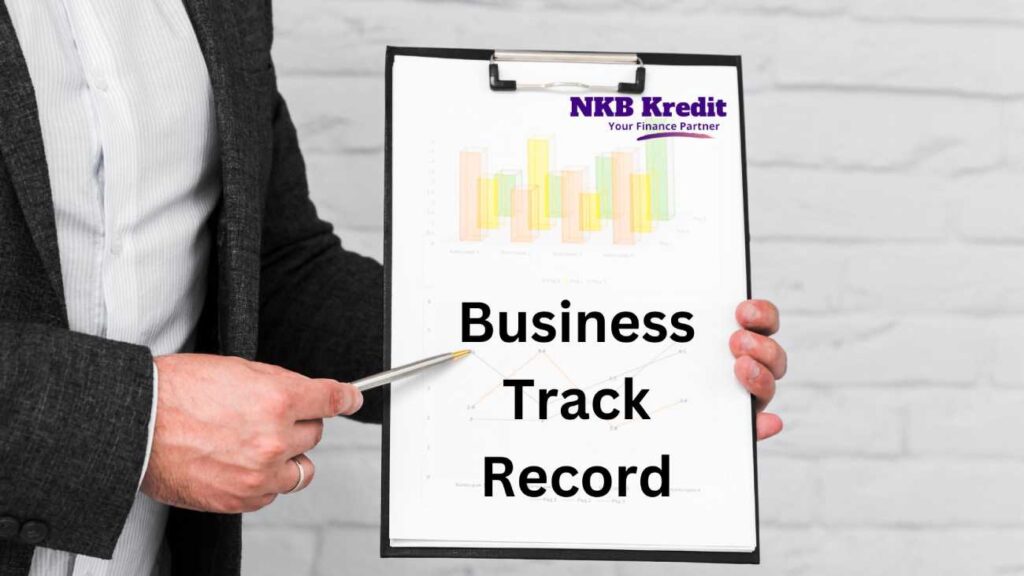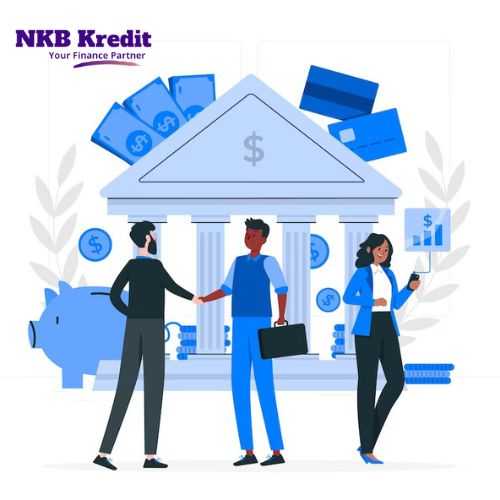Table of Contents

Introduction to Business Loan eligibility criteria
Every year, business loan eligibility criteria change regularly. That’s why business loans are crucial financial resources that can support and propel the growth of businesses. Whether you are starting a new venture or expanding an existing one, understanding the essential requirements for a business loan is paramount.
In this comprehensive guide, we will uncover the key elements that lenders consider when evaluating loan applications. By following these requirements, you can improve your chances of securing the financing you need to achieve your business goals Understanding the Importance of Business Loan eligibility criteria
Business loans serve as a lifeline for many entrepreneurs and business owners. They provide the necessary capital to invest in equipment, inventory, hiring employees, marketing efforts, and various other operational expenses. By securing a business loan, you can fuel the growth of your business, seize new opportunities, and navigate through challenging times.
Types of Business Loans Available
Before diving into the requirements, it’s essential to familiarize yourself with the different types of business loans available. Each loan type serves specific purposes and caters to different business needs. Common types of business loans include term loans, lines of credit, equipment financing, invoice factoring, and Small Business Administration (SBA) loans. Understanding which loan type aligns with your business objectives will help you navigate the loan application process with confidence.
Benefits and Risks Associated with Business Loans
While business loans offer numerous benefits, it’s crucial to consider the potential risks. Benefits include access to capital, improved cash flow, and the ability to make strategic investments. However, it’s important to evaluate the risks as well, such as debt obligations, interest costs, and potential collateral requirements. Assessing the benefits and risks associated with business loans is essential for making informed decisions and managing your finances effectively.
Assessing Financial Readiness
Before applying for a business loan, it’s crucial to assess your financial readiness. Lenders meticulously evaluate financial statements, debt service coverage ratios, credit history, and personal finances. By thoroughly examining these aspects, you can position yourself as a creditworthy borrower.
Evaluating Business Financial Statements
To evaluate your financial stability and performance, lenders scrutinize your profit and loss statements, balance sheets, and cash flow statements.
Analyzing Profit and Loss Statements
Profit and loss statements provide insights into your business’s revenue, expenses, and profitability over a specific period. Lenders assess these statements to evaluate your ability to generate consistent revenue and manage costs effectively. They look for positive trends and evidence of strong financial performance.
Reviewing Balance Sheets
Balance sheets provide a snapshot of your business’s financial health, showcasing its assets, liabilities, and equity at a particular point in time. Lenders assess balance sheets to evaluate your business’s liquidity, debt levels, and net worth. A healthy balance sheet demonstrates strong financial standing and enhances your loan prospects.
Assessing Cash Flow Statements
Cash flow statements outline the inflows and outflows of cash in your business. Lenders use cash flow statements to assess your ability to generate sufficient cash to cover operating expenses, loan repayments, and other financial obligations. Positive cash flow demonstrates financial stability and increases your chances of loan approval.
Calculating Debt Service Coverage Ratio
Debt Service Coverage Ratio (DSCR) is a critical metric that lenders use to evaluate your ability to repay the loan. It measures your cash flow available for debt repayment by comparing your net operating income to your debt obligations.
Definition and Purpose of DSCR
DSCR determines whether your business generates enough income to cover its debt payments. It indicates your ability to comfortably meet your financial obligations while continuing to invest in business growth. Generally speaking, lenders want a DSCR of 1.25 or above.
Calculating DSCR for Loan Eligibility
To calculate your DSCR, divide your net operating income by your total debt service (principal and interest payments). A higher DSCR indicates a greater capacity to meet loan repayment obligations. If your DSCR falls below the desired threshold, you may need to improve it before applying for a loan.
Improving DSCR for Better Loan Prospects
To enhance your DSCR, you can either increase your net operating income or reduce your debt obligations. Generating more revenue, cutting costs, and paying down existing debts can positively impact your DSCR and increase the likelihood of loan approval.
Scrutinizing Credit History and Personal Finances
In addition to evaluating your business’s financial statements, lenders will examine your credit history and personal finances.
Understanding Credit Scores and Reports
Credit scores reflect your creditworthiness and play a crucial role in determining your loan eligibility. Lenders assess your credit scores to evaluate your repayment history, outstanding debts, and credit utilization. Maintaining a good credit score demonstrates reliability and enhances your chances of loan approval.
Rectifying Credit Issues
If your credit score is less than ideal, taking steps to rectify credit issues is essential. Review your credit report, identify inaccuracies, and dispute any errors. Paying bills on time, reducing credit facility debt, and avoiding new credit inquiries can significantly improve your creditworthiness.
Minimizing Personal Debt
Lenders also consider your personal debt when evaluating loan applications. Minimizing personal debt reduces your debt-to-income ratio and reassures lenders about your ability to manage financial responsibilities. Paying off personal debts or consolidating them can enhance your loan prospects.
Developing a Well-Defined Business Plan

A comprehensive business plan provides lenders with a clear understanding of your business’s goals, strategies, and financial projections.
The importance of a Comprehensive Business Plan
A strong business plan acts as a road map for the success of your company. It outlines your vision, target market, competitive landscape, marketing strategies, and financial goals. A comprehensive business plan demonstrates your commitment, competence, and understanding of your industry.
Covering Essential Components
A business plan should include essential components such as an executive summary, company description, market analysis, product or service offering, marketing and sales strategies, organization and management structure, and financial projections. Each section should be detailed and supported with relevant data and research.
Demonstrating Market Analysis
Lenders are interested in understanding your target market and competitive landscape. Provide a detailed market analysis that highlights industry trends, customer demographics, target market segments, and competitor analysis. Demonstrating a deep understanding of your market showcases your business’s potential for success.
Detailing Financial Projections
Financial projections give lenders visibility into your business’s expected revenues, expenses, and profitability. Include projected income statements, balance sheets, and cash flow statements for at least the next three years. Use realistic assumptions and support your projections with sound market research and industry benchmarks.
Providing Collateral and Loan Guarantees
Collateral and loan guarantees provide lenders with additional security and assurance when extending a business loan.
Types of Acceptable Collateral
Collateral can be assets such as real estate, equipment, inventory, accounts receivable, or marketable securities. Different lenders have varying preferences for acceptable collateral. Understanding the types of collateral lenders consider can help you prepare the necessary documentation.
Valuing Collateral for Loan Consideration
Lenders assess the value of your collateral to determine the loan amount they are willing to extend. Hiring a professional appraiser or using reliable valuation methods can ensure accurate and comprehensive assessments. The higher the value of your collateral, the greater your borrowing capacity.
Exploring Loan Guarantee Options
involve a third party, such as the Small Business Administration, guaranteeing a portion of the loan. This provides lenders with an additional layer of security and potentially expands your borrowing options.

Outlining a Clear Loan Repayment Strategy
A well-defined loan repayment strategy assures lenders that you have a plan in place to honor your financial obligations.
Discussing Loan Repayment Terms
Understand the loan repayment terms and conditions, including interest rates, repayment periods, and any applicable fees. This information is crucial when assessing the feasibility of loan repayment and negotiating loan terms.
Offering Realistic Repayment Methodologies
Outline a repayment methodology that aligns with your business’s cash flow. Explore repayment options such as equal monthly installments, balloon payments, or interest-only payments. Demonstrating a practical and viable repayment plan helps instill confidence in lenders.
Highlighting Risk Mitigation Measures
Addressing potential risks and providing risk mitigation strategies displays your preparedness and commitment to minimizing the likelihood of loan default. Discuss contingency plans, emergency funds, and insurance coverage to mitigate risks specific to your business.
Establishing a Credible Business Track Record

A solid business track record demonstrates your business’s stability, success, and potential for future growth.
Demonstrating Business Stability and Performance
Lenders seek evidence of consistent revenue growth, profitability, and industry accolades when evaluating your business’s stability and performance.
Displaying Steady Revenue Growth
Present historical revenue data that showcases consistent growth over time. Highlight successful product launches, revenue diversification strategies, or improvements in market share. This demonstrates the viability of your business model and increases lenders’ confidence.
Highlighting Profitability Trends
Profitability trends indicate your business’s ability to generate sustainable profits. Exhibit increasing profit margins, efficient cost management, or strategies that have led to improved profitability. Positive profitability trends reinforce your creditworthiness.
Showcasing Industry Accolades and Certifications
Industry accolades, certifications, or recognition from reputable organizations provide lenders with reassurance about your business’s credibility and competence. Highlight any awards, certifications, or affiliations that position your business as a reliable and competitive player.
Presenting Sound Management and Team Expertise
Lenders evaluate the quality and experience of your management team to assess your business’s leadership capabilities.
Outlining Key Leadership Roles and Responsibilities
Provide a detailed overview of your management team, including key personnel and their responsibilities. Emphasize the relevant experience and expertise they bring to your business. Demonstrating a competent and capable management team enhances your loan prospects.
Emphasizing Relevant Industry Experience
Highlight the industry experience and track record of your management team. Discuss any previous successes, industry knowledge, or contributions that indicate your team’s ability to navigate challenges and seize opportunities effectively.
Addressing Succession Planning Strategies
Succession planning demonstrates your long-term vision and commitment to business continuity. Outline your plans for leadership transitions and the measures you have in place to ensure a smooth transition in the event of key personnel changes. This reassures lenders about the sustainability of your business.
Fostering Strong Business Relationships
Healthy and collaborative relationships with suppliers, vendors, and customers can positively impact your loan prospects.
Nurturing Connections with Suppliers and Vendors
Demonstrate strong relationships with your suppliers and vendors. Highlight long-term partnerships, favorable payment terms, or exclusive arrangements. These relationships showcase your business’s reliability and indicate potential support during challenging times.
Showcasing Favorable Customer Relationships
Positive customer relationships are a testament to your business’s value proposition and customer satisfaction. Highlight customer testimonials, reviews, or loyalty programs that demonstrate your ability to attract and retain a loyal customer base. Strong customer relationships instill confidence in lenders.
Collaborating with Key Business Partners
Collaborations and partnerships with other businesses can enhance your loan prospects. Showcase any strategic alliances, joint ventures, or partnerships that contribute to your business’s growth strategy. These collaborations demonstrate your ability to leverage resources and expand your market reach.
Also read:-Best 5 Business Financing Options
Also read:-Secured vs Unsecured Business Loans
Researching and Selecting the Right Lending Institution

Choosing the right lending institution is crucial for favorable loan terms and a smooth loan approval process.
Identifying Suitable Lending Institutions
Evaluate different lending institutions, including banks and alternative lenders, to identify those that cater to your specific business needs. Research their lending criteria, target industries, and loan application requirements.
Assessing Lender Specializations
Different lenders specialize in various industries or loan types. Identify lenders with expertise in your industry or who offer loan products tailored to your business’s needs. Engaging with specialized lenders can increase your chances of a successful loan application.
Considering Loan Approval Speed and Process
Compare loan terms and interest rates offered by different lending institutions to identify the most favorable options for your business.
Comparing Loan Terms and Interest Rates
Different loan terms, such as the length of the repayment period or the frequency of repayments, can impact your cash flow. Analyze the terms offered by various lenders and choose those that align with your business’s financial capabilities.
Evaluating the Overall Cost of Borrowing
In addition to interest rates, consider any fees, prepayment penalties, or other charges associated with the loan. Assessing the overall cost of borrowing allows you to make an informed decision and select the loan with the most cost-effective terms.
Negotiating Favorable Loan Terms
When negotiating loan terms, leverage your financial strength, healthy credit history, and competitive loan offers from other lenders. Be proactive in seeking favorable terms and demonstrating your business’s value proposition.
Seeking Professional Advice and Assistance
Navigating the loan application process can be challenging, and seeking professional advice can provide valuable guidance and support.
Engaging Business Loan Advisors
Business loan advisors can assist you in navigating the complexities of the loan application process. They offer expertise, guidance, and connections to lenders who may be a good fit for your business needs. Engaging a business loan advisor can streamline your loan application journey.
Utilizing Accountants and Financial Planners
Accountants and financial planners can provide valuable insights into your business’s financial health and help you optimize your financial statements. They can also guide you in managing your personal finances to strengthen your loan prospects. Utilizing their expertise ensures that your financial records and projections are accurate and presentable to lenders.
Evaluating Legal Counsel for Loan Agreements
Before signing any loan agreement, consult legal counsel to ensure all terms are fair and compliant with industry regulations. Legal advice can help you understand the terms and conditions of the loan, protect your rights, and ensure a smooth loan process.
Conclusion

Securing a business loan is a critical step in the growth and success of your business. By understanding and meeting the essential requirements outlined in this comprehensive guide, you can position yourself as a creditworthy borrower and increase your chances of loan approval. Assess your financial readiness, develop a well-defined business plan, establish a credible business track record, and select the right lending institution. By following these steps, you’ll be well on your way to securing the financing you need to achieve your business goals.
Summary of Essential Loan Requirements
- Evaluate financial statements, including profit and loss statements, balance sheets, and cash flow statements.
- Calculate and improve your debt service coverage ratio (DSCR).
- Scrutinize your credit history and personal finances to improve your creditworthiness.
- Develop a comprehensive business plan that includes market analysis and financial projections.
- Provide collateral and loan guarantees, and outline a clear loan repayment strategy.
- Establish a credible business track record by showcasing stability, profitability, and strong relationships.
- Research and select the most suitable lending institution based on specialization, loan terms, and interest rates.
Seek professional advice and
FAQ
Essential Requirements for Business Loan in 2024: Your FAQ Guide
Securing a business loan can be the fuel that propels your venture to new heights. But navigating the loan application process can feel daunting. To help you understand the essentials and increase your chances of approval, we’ve compiled a list of frequently asked questions about business loan requirements in 2024.
What are the basic eligibility criteria for a business loan?
The specific requirements may vary depending on the lender and loan type, but some general eligibility criteria include:
Legal business structure: Your business must be a registered entity, such as a sole proprietorship, partnership, or limited liability company (LLC).
Minimum age: You must be at least 18 years old to apply for a business loan.
Creditworthiness: Both your personal and business credit scores will be assessed. A clean credit record shows that you can handle debt sensibly..
Business financials: You’ll need to provide documents such as financial statements, tax returns, and bank statements to prove your business’s financial health and earning potential.
Business experience: Some lenders may require you to have a minimum number of years of business experience.
How many types of business Funding available?
There’s a diverse range of business loans to cater to various needs. Some common types include:
Term loans: These provide a lump sum of money that you repay over a fixed period with regular installments.
Lines of credit: This is a flexible borrowing option that allows you to access funds as needed up to a pre-approved limit.
SBA loans: The Small Business Administration (SBA) offers government-backed loans with favorable terms for eligible small businesses.
Equipment financing: This type of loan is Only designed for help you purchase Machinery or equipment for your business.
What documents do I need to provide for a business loan application?
The required documents may vary, but typically you’ll need to provide:
Personal documents For identification: passport, Driver’s license, etc.
Business registration documents: Articles of incorporation, LLC filing, etc.
Financial statements: Balance sheet, income statement, cash flow statement.
Tax returns: tax returns for individuals and businesses during the last few years.
Bank statements: Business bank statements for the past few months.
Business plan: A well-written business plan outlining your business goals, strategies, and financial projections.
What can I do to improve my chances of getting approved for a business loan?
Here are some tips:
Maintain a good credit score: Work on improving your personal and business credit scores before applying for a loan.
Strengthen your business financials: Ensure your business has a healthy cash flow and consistent revenue.
Develop a solid business plan: A well-crafted plan demonstrates your business’s viability and potential for success.
Shop around for the best rates and terms: Compare loan options from different lenders to find the best deal for your needs.
Seek professional help: Consider consulting a financial advisor or business loan specialist for guidance.
What are some alternative financing options for my business?
If you’re not eligible for a traditional business loan, there are other ways to raise capital for your business, such as:
Bootstrapping: This involves using personal savings or funds generated from your business operations to finance your growth.
Crowdfunding: You can raise funds from a sizable pool of individual investors by using websites like Indiegogo and Kickstarter..
Grants and government assistance: Several government programs and organizations offer grants and financial assistance to small businesses.
Angel investors and venture capitalists: These individuals or firms invest in promising startups with high growth potential.
Remember, securing a business loan is just one step in your entrepreneurial journey. By carefully planning, preparing, and understanding the requirements, you can increase your chances of success and take your business to the next level.
We hope this FAQ has been helpful! If you have any Other questions, feel free to leave a comment in comment section with your name and email id .
Bonus Tip: Utilize online tools and resources available from the SBA and other organizations to access valuable information and guidance on business loans and financing options.

Pingback: How to get best Small Business Loan & Business Funding 2024
Pingback: Best way to Check business loan eligibility criteria 2024
Pingback: Secured vs unsecured loans: What is the difference?